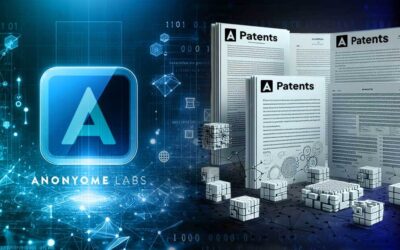Anonyome Labs is a respected authority on decentralized identity. Our CTO and co-CEO Dr Paul Ashley frequently presents on the topic at conferences and seminars.
On 30 and 31 May 2022, Dr Ashley was honored to present a keynote address at the Workshop on Blockchain Applications and Fintel in Brisbane, Australia.
The workshop, hosted by Griffith University, was a platform for sharing knowledge, innovations and practical experiences for industry, government and academia on the opportunities and challenges of real-world applications of blockchain.
What is blockchain?
Blockchain is a database for recording information so it can’t be changed or hacked (immutable). It’s how we establish trust in decentralized systems. You might have heard of blockchain in relation to bitcoin.
Blockchain is a type of decentralised database that multiple participants (computers in a network) manage. It can be used for almost anything valuable such as supply chains, payments, accounts, production, orders, decentralized exchanges, smart contracts, etc. Blockchain has many benefits to users, including that it’s cost effective and lower risk than a centralized database.
Blockchains are unlimited in number and increasing all the time. Right now, about 1,000 blockchains exist in the world, with four different types of blockchain network (public, private, consortium and hybrid). Read this and this for more.
Dr Ashley discussed where the world is at with decentralized identity, one of the most important uses cases for blockchain
At the Brisbane workshop, Dr Ashley presented on the “Progress and Pitfalls on the Path to Decentralized Identity”. He discussed:
- Improving privacy in the surveillance economy
- What decentralized identity is, and the transition from centralized to decentralized identity management
- Decentralized identity wallet
- Decentralized identity blockchain
- Decentralized identity verifiable credentials (or digital ID documents)
- Decentralized identity standards
- A case study on Block’s tbdex decentralized exchange protocol.
Dr Ashley concluded:
- With the continued rise of the surveillance economy, the world needs solutions that improve privacy for everyday internet users.
- Decentralized Identity is the most important privacy technology innovation for the next decade, giving users control of their personal data.
- Decentralized identity-based applications rely on blockchain as the anchor of trust and therefore decentralized identity is one of the most important use cases for blockchain technology.
- Although there has been a lot of progress in decentralized identity in the past few years, there are still many pitfalls that need to be overcome, including interoperability and ease of use for the everyday user.
Anonyome Labs offers decentralized identity capabilities in Sudo Platform
Dr Paul Ashley was an obvious choice for the keynote address on challenges and benefits of real-world applications of blockchain and decentralized identity as a use case for it. Anonyome Labs is enhancing its Sudo digital identity with decentralized identity capabilities, to help stop the full-scale attack on personal privacy. This functionality is available through our Sudo Platform SDKs, to help enterprises rapidly develop and deploy customer privacy solutions.
Beyond Sudo Platform, Anonyome Labs supports the ongoing development of decentralized identity by:
- Helping to run three decentralized identity-focused blockchains
- Being an active contributor to the decentralized identity standards organizations
- Contributing source code back to the decentralized identity open source community.
Decentralized identity is considered the most important privacy innovation for the coming decade since it provides the foundation for great improvement in privacy. Learn more on our blog, or go straight to:
- Decentralized Identity: Key Concepts Explained
- Simple Definitions for Complex Terms in Decentralized Identity
- How You Can Use Sudo Platform Digital Identities and Decentralized Identity Capabilities to Rapidly Deliver Customer Privacy Solutions
- 7 Benefits to Enterprises from Proactively Adopting Decentralized Identity
Photo by: elenabsl



